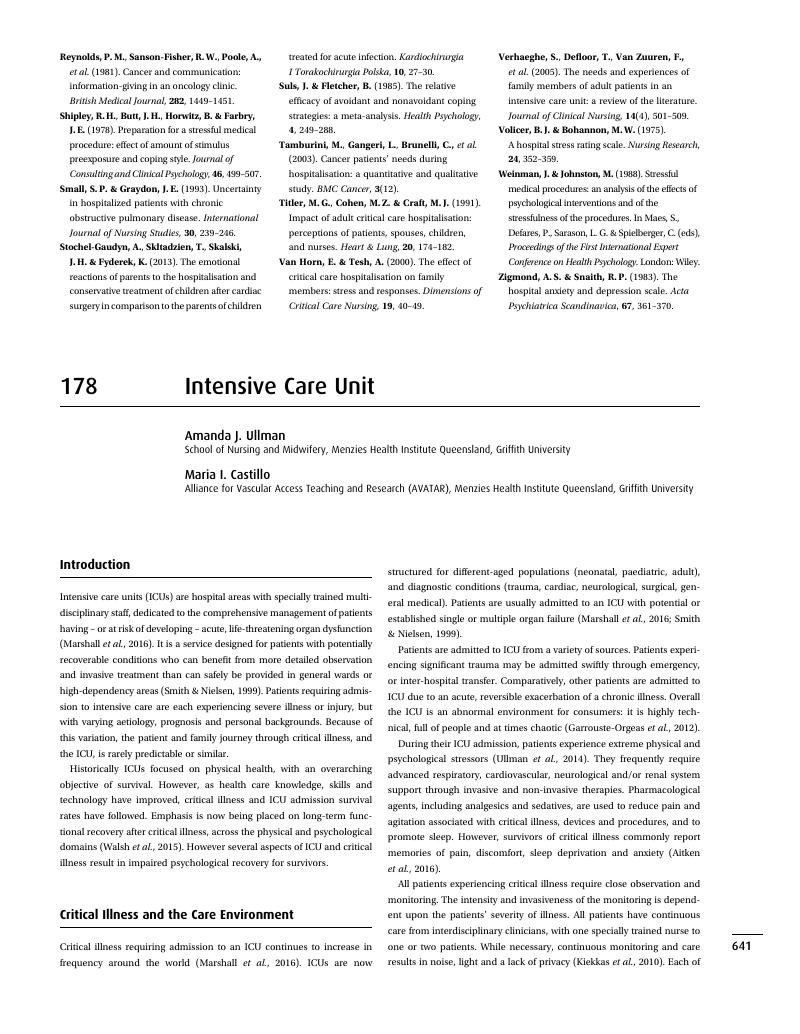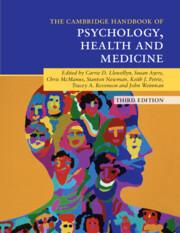Book contents
- Cambridge Handbook of Psychology, Health and Medicine
- Cambridge Handbook of Psychology, Health and Medicine
- Copyright page
- Contents
- Contributors
- Preface
- Part I Psychology Health and Illness
- Part II Medical Topics
- Section 1 Prevention and Screening
- Section 2 Medical Conditions and Symptoms
- Section 3 Treatment and Care
- 170 Anaesthesia
- 171 Antenatal Care
- 172 Assisted Reproductive Technologies
- 173 Chemotherapy
- 174 Complementary and Alternative Medicine
- 175 Contraception
- 176 Hormone Replacement Therapy
- 177 Hospitalization
- 178 Intensive Care Unit
- 179 Intimate Examinations
- 180 Oral Care and Hygiene
- 181 Organ and Blood Donation
- 182 Palliative Care
- 183 Psychotropic Drugs and Medication
- 184 Radiotherapy
- 185 Reconstructive and Cosmetic Surgery
- 186 Sterilization and Vasectomy
- 187 Surgery
- 188 Transplantation
- Index
- References
178 - Intensive Care Unit
from Section 3 - Treatment and Care
Published online by Cambridge University Press: 05 June 2019
- Cambridge Handbook of Psychology, Health and Medicine
- Cambridge Handbook of Psychology, Health and Medicine
- Copyright page
- Contents
- Contributors
- Preface
- Part I Psychology Health and Illness
- Part II Medical Topics
- Section 1 Prevention and Screening
- Section 2 Medical Conditions and Symptoms
- Section 3 Treatment and Care
- 170 Anaesthesia
- 171 Antenatal Care
- 172 Assisted Reproductive Technologies
- 173 Chemotherapy
- 174 Complementary and Alternative Medicine
- 175 Contraception
- 176 Hormone Replacement Therapy
- 177 Hospitalization
- 178 Intensive Care Unit
- 179 Intimate Examinations
- 180 Oral Care and Hygiene
- 181 Organ and Blood Donation
- 182 Palliative Care
- 183 Psychotropic Drugs and Medication
- 184 Radiotherapy
- 185 Reconstructive and Cosmetic Surgery
- 186 Sterilization and Vasectomy
- 187 Surgery
- 188 Transplantation
- Index
- References
Summary

- Type
- Chapter
- Information
- Cambridge Handbook of Psychology, Health and Medicine , pp. 641 - 642Publisher: Cambridge University PressPrint publication year: 2019

